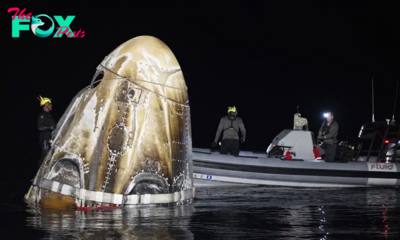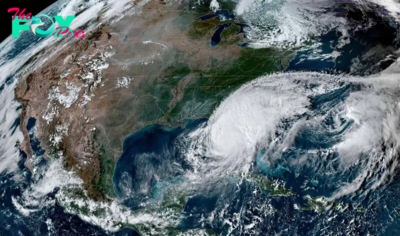Science
Silver is being buried beneath the sea, and it's all because of climate change, study finds
Global warming is burying huge amounts of silver beneath the South China Sea — and the same could be happening across the world's oceans, scientists say.
The amount of silver trapped in marine sediments off the coast of Vietnam has increased sharply since 1850, the new study shows. This coincides with the start of the Industrial Revolution, when humans began pumping greenhouse gases into the atmosphere on a large scale.
This is the first time research has highlighted a possible link between silver cycles in the ocean and global warming, study lead author Liqiang Xu, an associate professor in the department of geoSciences at the Hefei University of Technology in China, told Live Science in an email. The discovery indicates global warming could have unknown impacts on other trace elements, too, Xu said. (Trace elements are elements like cobalt, zinc and iron that are present in tiny amounts in the environment but may serve as essential micronutrients for life.)
Like other elements, silver originates on land and enters the oceans primarily through weathering, where rainwater leaches elements from rocks and carries them into rivers.
Certain regions of the ocean are enriched with silver due to heavy river inputs, atmospheric dust, human emissions and hydrothermal vents. Silver in its ionic form (Ag+) is toxic for marine creatures, Xu said, but very little is known about how it interacts with wider ocean ecosystems.
Related: Cutting pollution from the shipping industry accidentally increased global warming, study suggests
To find out more about how silver behaves in marine environments, Xu and his colleagues analyzed a sediment core from the Vietnam upwelling area in the eastern South China Sea. Upwelling areas are coastal regions where cold water rises from the seafloor, hauling up nutrients from the deep that sustain rich surface ecosystems.
-

 Science2d ago
Science2d agoInside Capitol Hill’s Latest UFO Hearings
-

 Science2d ago
Science2d agoYou Won’t Want to Miss the Leonid Meteor Shower. Here’s How and When You Can See It
-

 Science3d ago
Science3d agoHere’s What Trump’s Win Means for NASA
-

 Science6d ago
Science6d agoWhy Risky Wildfire Zones Have Been Increasing Around the World
-

 Science1w ago
Science1w agoIt’s Time to Redefine What a Megafire Is in the Climate Change Era
-

 Science1w ago
Science1w ago4 Astronauts Return to Earth After Being Delayed by Boeing’s Capsule Trouble and Hurricane Milton
-

 Science1w ago
Science1w agoThe Elegance and Awkwardness of NASA’s New Moon Suit, Designed by Axiom and Prada
-

 Science2w ago
Science2w agoSpaceX Launches Its Mega Starship Rocket. This Time, Mechanical Arms Catch It at Landing



























